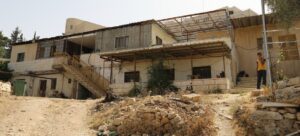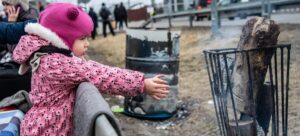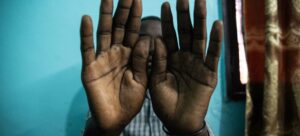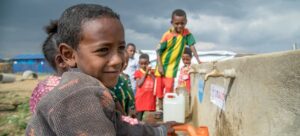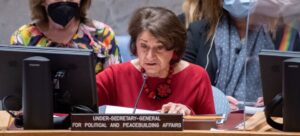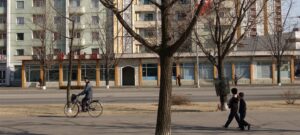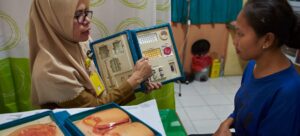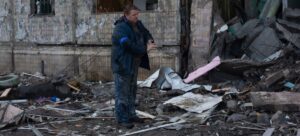The UN Special Rapporteur’s report echoes recent findings by Palestinian, Israeli and international human rights organisations who analized Israel’s 55-year occupation of the Palestinian Territory.
“There is today in the Palestinian territory occupied by Israel since 1967 a deeply discriminatory dual legal and political system, that privileges the 700,000 Israeli Jewish settlers living in the 300 illegal Israeli settlements in East Jerusalem and the West Bank,” said Michael Lynk, the UN Special Rapporteur for the situation of human rights in the Palestinian territory occupied since 1967.
‘Open-air prison’
Mentioning the lack of rights of people living in the same vicinity, but separated by walls, checkpoints and roads, Mr. Link acknowledged that “there are more than three million Palestinians living under an oppressive rule of institutional discrimination and without a path to a genuine Palestinian state that the world has long promised, is their right”.
“Another two million Palestinians live in Gaza, described regularly as an ‘open-air prison’, without adequate access to power, water or health, with a collapsing economy and with no ability to freely travel to the rest of Palestine or the outside world”, he added.
He ran through the internationally-understood legal definition of apartheid – the system of institutionalized racial segregation practiced in South Africa prior to its dismantling in the early 1990s.
Israel, he said, conforms to the definition as a “political regime which so intentionally and clearly prioritizes fundamental political, legal and social rights to one group over another, within the same geographic unit on the basis of one’s racial-national-ethnic identity”.
Crime against humanity
“Apartheid is not, sadly, a phenomenon confined to the history books on southern Africa,” Mr. Lynk said, in his report to the Human Rights Council.
“The 1998 Rome Statute of the International Criminal Court came into law after the collapse of the old South Africa. It is a forward-looking legal instrument which prohibits apartheid as a crime against humanity today and into the future, wherever it may exist.”
The independent rights expert added that Israel’s military rule in the occupied Palestinian territory has been deliberately built with the “intention of enduring facts on the ground to demographically engineer a permanent, and illegal, Israeli sovereign claim over occupied territory, while confining Palestinians in smaller and more confined reserves of disconnected land”.
Apartheid is not, sadly, a phenomenon confined to the history books on southern Africa – UN rights expert Michael Lynk
He also mentioned that leading international figures – including former UN Secretary General Ban Ki-Moon, Archbishop Desmond Tutu, South African Foreign Minister Naledi Pandor, and former Israeli Attorney General Michael Ben-Yair – have also all described Israel’s occupation, as apartheid.
International community’s responsibility
Citing inhumane acts, arbitrary and extra-judicial killings, torture, the denial of fundamental rights, an abysmal child mortality rate, collective punishment, an abusive military court system, and home demolitions, Mr. Lynk said the international community bears much responsibility for the present situation.
“For more than 40 years, the UN Security Council and General Assembly have stated in hundreds of resolutions that Israel’s annexation of occupied territory is unlawful, its construction of hundreds of Jewish settlements are illegal, and its denial of Palestinian self-determination breaches international law,” he added.
Highlighting that no accountability had ever followed, the Special Rapporteur concluded, “if the international community had truly acted on its resolutions 40 or 30 years ago, we would not be talking about apartheid today.”
Mr. Link called on the international community to come up with an imaginative list of effective accountability measures to bring the Israeli occupation “and its apartheid practices” in the occupied Palestinian territory, to a complete end.
Special Rapporteurs are part of what’s known as the Special Procedures of the Human Rights Council. They are not UN staff, and do not receive a salary for their work, and serve in their own individual capacity.
